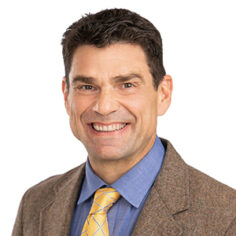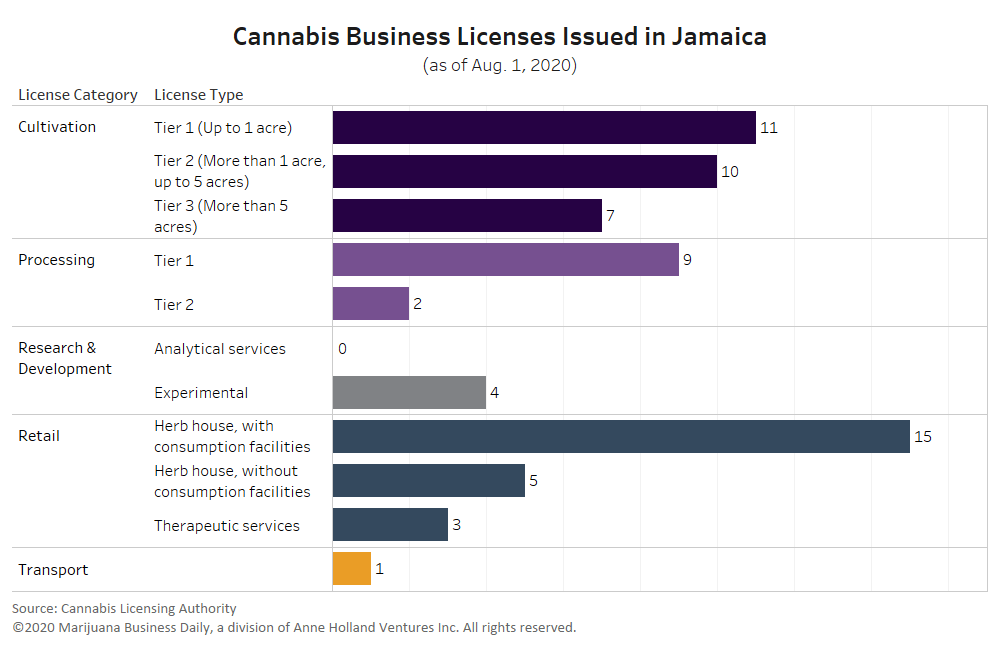A Canadian-Jamaican company comprised of former veterans of Steep Hill Labs and Canopy Growth Corp. has shipped what it claims is the first Drug Enforcement Administration-sanctioned export of cannabis products from Jamaica to the United States.
The Toronto-based Pure Jamaican brand and its cultivation and manufacturing arm in Montego Bay, Jamaica, Seven-10 Pharmaceuticals, exported eight different tincture products and three different distillate products with varying ratios of THC and CBD, Scott Cathcart, CEO of both Pure Jamaican and Seven-10 Pharmaceuticals, told MJBizDaily in a phone interview.
The company shipped only a small amount of the products for DEA-approved research.
“We shipped enough for testing purposes, not in commercial quantities,” said Cathcart, who spent nearly five years as the chief global expansion officer at Steep Hill Labs before starting Pure Jamaican and Seven-10 with another former Steep Hill executive, Martin Shefsky, in 2018.
The other cannabis vet on Pure Jamaican’s leadership team is John Bell. He is Pure Jamaican’s board chair, a position he formerly held with Canada’s Canopy growth.
The company’s products were shipped to a DEA-licensed facility, ACS Laboratory, in Sun City Center, Florida, Cathcart said.
The testing facility has a contentious history with Florida regulators.
Since 2022, the Florida Office of Medical Marijuana Use has fined ACS at least three times, according to reporting by MJBizDaily and Analytical Cannabis. Penalties have reached tens of thousands of dollars.
The alleged violations range from ACS reporting false or inaccurate information on certificates of analysis to using methods that were not compliant with state regulations.
Since 2021, DEA-licensed researchers have been able to buy cannabis from a small number of marijuana cultivation companies approved by the agency.
In the past, researchers’ only options were to obtain research cannabis from the University of Mississippi or get DEA permission to import cannabis from foreign companies such as Tilray in Canada.
Cathcart hopes the Biden administration’s proposed rescheduling of marijuana from Schedule 1 to Schedule 3 comes to fruition and makes it possible to eventually commercialize his companies’ products in the United States.
He acknowledged that the products might have to go through the U.S. Food and Drug Administration’s approval process – which can take years – before becoming commercially available.
But Cathcart also expressed hope that the products would meet the definition of “nutraceuticals” that wouldn’t need federal government approval to be sold.
“Whatever the DEA mandates, we’ll follow,” Cathcart said.
“Once rescheduling happens, we expect to have a direct-to-patient pathway.”
Cathcart said he is “optimistic” that rescheduling would make it possible for Pure Jamaican products to be sold in the U.S. because the company has a pharmaceutical manufacturing license from the Pharmacy Council of Jamaica and Good Manufacturing Practice certification and controlled substances permit from Jamaica’s Ministry of Health & Wellness.
He said it was unclear if a Jamaican pharmaceutical license provides the same privileges to his company that a U.S. pharmaceutical license would provide to a American operator.
According to a Pure Jamaican news release, the company already is shipping its tincture products directly to patients in Brazil.
Omar Sacirbey can be reached at omar.sacirbey@mjbizdaily.com.




